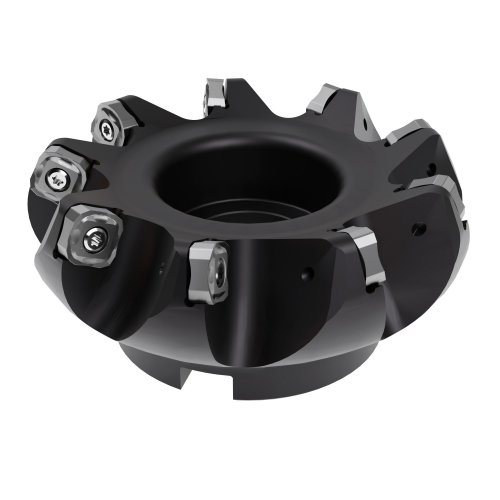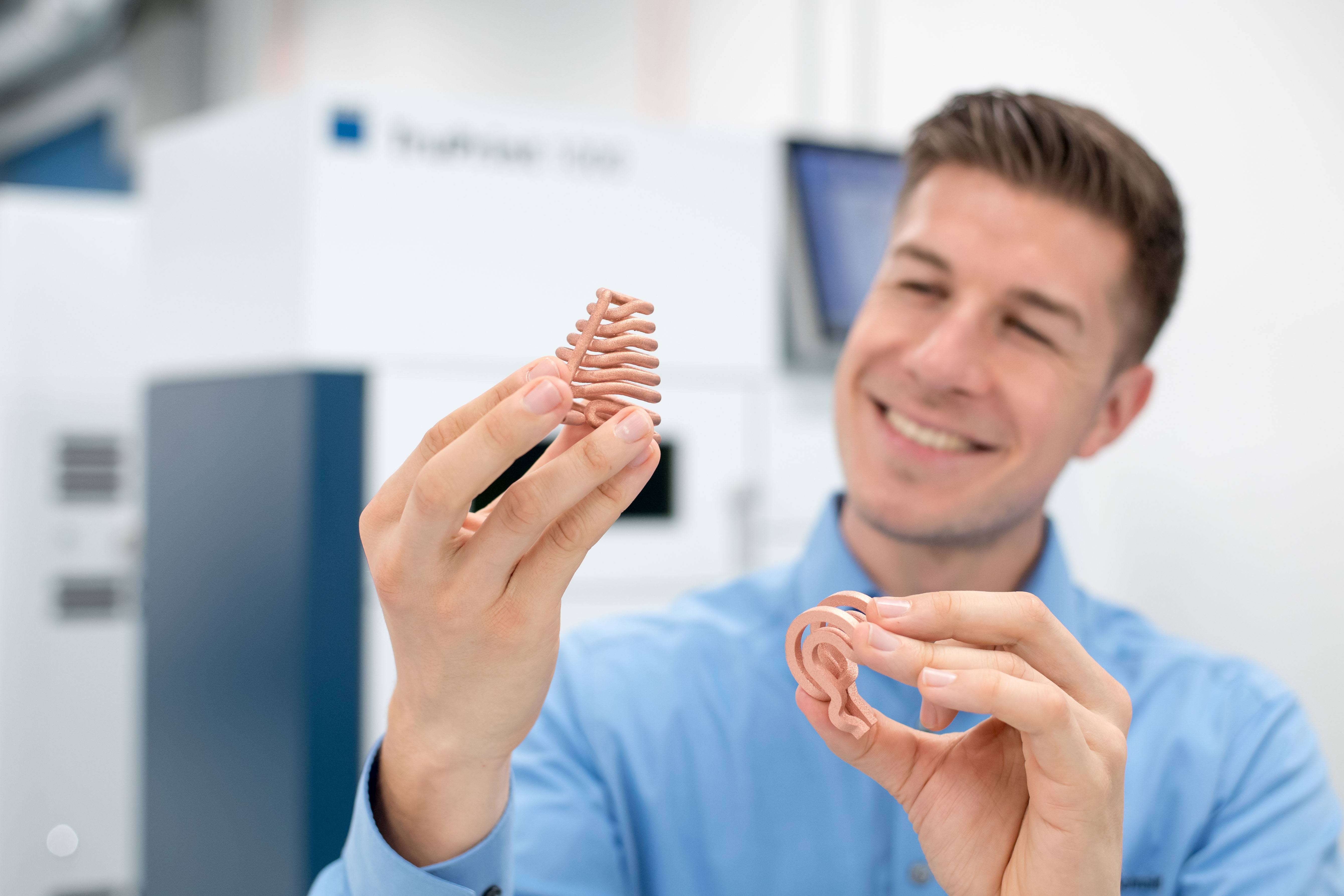Advances in classical technologies assure the machine tool’s future

The WGP will be showcasing its immense potentials at the EMO Hannover 2017
Frankfurt am Main, 31 July 2017. – At this year’s EMO Hannover, for the first time a research symposium will be held; under its aegis, the latest scientific developments will be presented. The VDW (German Machine Tool Builders’ Association) is in conjunction with the WGP (German Academic Society for Production Engineering) organising the “Production for Tomorrow” symposium. It will be focusing less on digitalisation and Industry 4.0 than on the numerous innovations in the fields of classical technologies. “With this symposium, we are aiming quite deliberately to draw attention to precisely those innovations that will guarantee the high-end quality of machine tools for the years ahead as well, irrespective of network thinking,” emphasises Prof. Eberhard Abele, President of the WGP – a grouping of leading German mechanical engineering professors.
Good reputation of German machines thanks to classical technologies
On 21 September 2017, at the EMO Hannover, the Production for Tomorrow symposium will be taking a look at the future of production. This has changed considerably over recent years, a development substantially attributable to digitalisation and networking of machines and lines within the context of Industry 4.0. But the classical technologies, too, possess immense inherent potentials, as the numerous remarkable developments of recent years go to show. “For example: in terms of metrology, drive technology and also laser beam sources, the quality of machine tools is steadily rising,” reports Professor Abele. “So classical technologies will guarantee the reputation of German machines in regard to precision, availability, efficiency and productivity into the future as well.”
A window on Production 2025
Thus the symposium begins logically enough with a keynote presentation from Professor Abele, who heads the Institute for Production Management, Technology and Machine Tools (PTW) at Darmstadt University of Applied Science. He will be outlining the production technology of 2025 from the WGP’s viewpoint. Representatives of seven prestigious WGP institutes will then report on their results from government-sponsored research projects focusing primarily on machine design and ultra-efficient manufacturing technologies.
Researchers from Hanover, for example, will be showing how in future production operations can be design-enhanced by means of active mechatronic systems. The limitations of metal-cutting processes, for example, lie not least in unwanted vibrations of the machines, known as machine dynamics and process dynamics. The researchers in Hanover have developed active intelligent systems that extend the previous technical limitations of axis and process dynamics.
Another presentation is devoted to the PLC program codes for machine tools. The control software has hitherto been tested manually by staff at virtual commissioning of the machines. Scientists in Stuttgart have now developed a system for automating this test. This renders it both more reliable and also more time-efficient, since a far higher proportion of the code can be tested in the same period.
Researchers from Kaiserslautern addressed the issue of drilling tools. Since drilling is one of the most frequent cutting processes, it offers concomitantly high potential for optimisation in regard to cost-efficiency and quality. These approaches to improvement have focused on the cooling lubricant feed and the cutting behaviour. Under the aegis of the symposium, the researchers will be presenting their innovative solutions in these two fields. Moreover, they will be showing simulation processes designed to improve the position and contour of the outlet nozzle at the internal cooling lubricant feed, so as to enable the efficiency of the cooling function and the high-precision, flexible preparation of the cutting edges to be optimised.
Not the least of the topics being addressed by Production for Tomorrow is ultra-high-precision machining – an extremely versatile technology for producing high-precision parts and optical surfaces. Its disadvantage, however, lies in the lengthy machining and make-ready times, which can easily last for several hours or even days. Scientists from Bremen and Hanover will be presenting some astounding results on high-performance metal-cutting. They have the potential to shorten the machining time for ultra-high-precision parts in the near future by a factor of 10. In addition to the time gained, advantages are also created in regard to cutting forces and wear and tear on the diamond tool. High-performance diamond milling, moreover, takes up a lot of time for manual spindle balancing. Here, the researchers from Hanover and Bremen will be presenting new approaches for more accurate, automated adjustment of the spindles. Last but not least, they will also be unveiling an innovative thermo-mechanical system for tool alignment in diamond milling applications.
The multifaceted research results detailed by the speakers during the Production for Tomorrow symposium will not only offer visitors insights into the production operations of the future: after the presentations there will be enough time for mutual empirical feedback with international experts.
Author: Gerda Kneifel, Press and Public Relations, VDW
At a glance
What: Symposium Production for Tomorrow
When: 21 September 2017, 10.00 a.m. to 2.00 p.m.
Where: Convention Centre CC, Hall 3B
Organisation: WGP, VDW
Language: English
Fee: 185 euros, until 18 August 155 euros
Registration: www.emo-hannover.de/konferenzen
Contact: Gerda Kneifel, WGP/VDW, Tel. +49 (0)69 756081-32, kneifel@wgp.de
Programme:
Keynote
10:00 a.m. Production Technology in 2025 – Challenges and Opportunities
Prof. Eberhard Abele, President of the WGP
Machine technology
10:30 a.m. Intelligent machine modules for the production operations of tomorrow
Prof. Hans-Christian Möhring, Institute for Machine Tools (IfW), Stuttgart
10:55 a.m. The next level of PLC program tests on machine tools
Karl Kübler, Institute for Control Engineering of Machine Tools and Manufacturing Units (ISW), Stuttgart
11:20 a.m. New approaches for pushing the limits of machine tools
Prof. Berend Denkena, Institute for Machine Tools (IFW), Hanover
Ultra-efficient manufacturing processes
12:20 p.m. Optimising drilling tools for industrial applications
Prof. Jan C. Aurich, Institute for Manufacturing Technology and Production Systems (FBK), Kaiserslautern
12:45 p.m. Hybrid machining strategy for use in high-performance milling of difficult-to-cut materials
Christopher Praetzas, Institute of Production Management, Technology and Machine Tools (PTW), Darmstadt
1:10 p.m. High-speed ultra-high-precision manufacturing Dr. Lars Schönemann, Institute of Materials Science (IWT), Bremen
1:35 p.m. Networking lunch
Pictures
Fig. 1: Prof. Eberhard Abele, source: PTW, Darmstadt University of Applied Science
Fig. 2: Sheet Metal Machining Centre, source: Institute for Metal-Forming, RWTH Aachen
Background
German Academic Society for Production Engineering (WGP)
The WGP is a grouping of leading German professors from 40 research institutes. They represent around 2,000 academics working in the field of production technology, who are globally networked. The WGP represents the needs and concerns of the research and teaching communities in their dealings with politicians, the business community and the public. It aims to restore the perceived importance of production science for society as a whole and for Germany’s industrial base in particular, and articulates responses to socially relevant issues ranging from Industry 4.0 to age-appropriate technology.
EMO Hannover 2017 – the world’s premier trade fair for the metalworking sector
From 18 to 23 September 2017, international manufacturers of production technology will be spotlighting “Connecting systems for intelligent production” at the EMO Hannover 2017. The world’s premier trade fair for the metalworking industry will be showcasing the entire bandwidth of today’s most sophisticated metalworking technology, which is the heart of every industrial production process. The fair will be presenting the latest machines, plus efficient technical solutions, product-supportive services, sustainability in the production process, and much, much more. The principal focus of the EMO Hannover is on metal-cutting and forming machine tools, production systems, high-precision tools, automated material flows, computer technology, industrial electronics and accessories. The trade visitors to the EMO come from all major sectors of industry, such as machinery and plant manufacturers, the automotive industry and its component suppliers, the aerospace sector, precision mechanics and optics, shipbuilding, medical technology, tool and die manufacture, steel and lightweight construction. The EMO Hannover is the world’s most important international meeting point for production technology specialists from all over the planet. In 2013, the fair attracted more than 2,130 exhibitors, and around 143,000 trade visitors from more than 100 different countries. EMO is a registered trademark of the European Association of the Machine Tool Industries CECIMO.
You will find texts and images relating to the EMO Hannover 2017 on the internet at:
www.emo-hannover.de/de/presse/pressemitteilungen/pressemitteilungen/pressemitteilungen.xhtml
You can also follow the EMO Hannover using our social media channels



